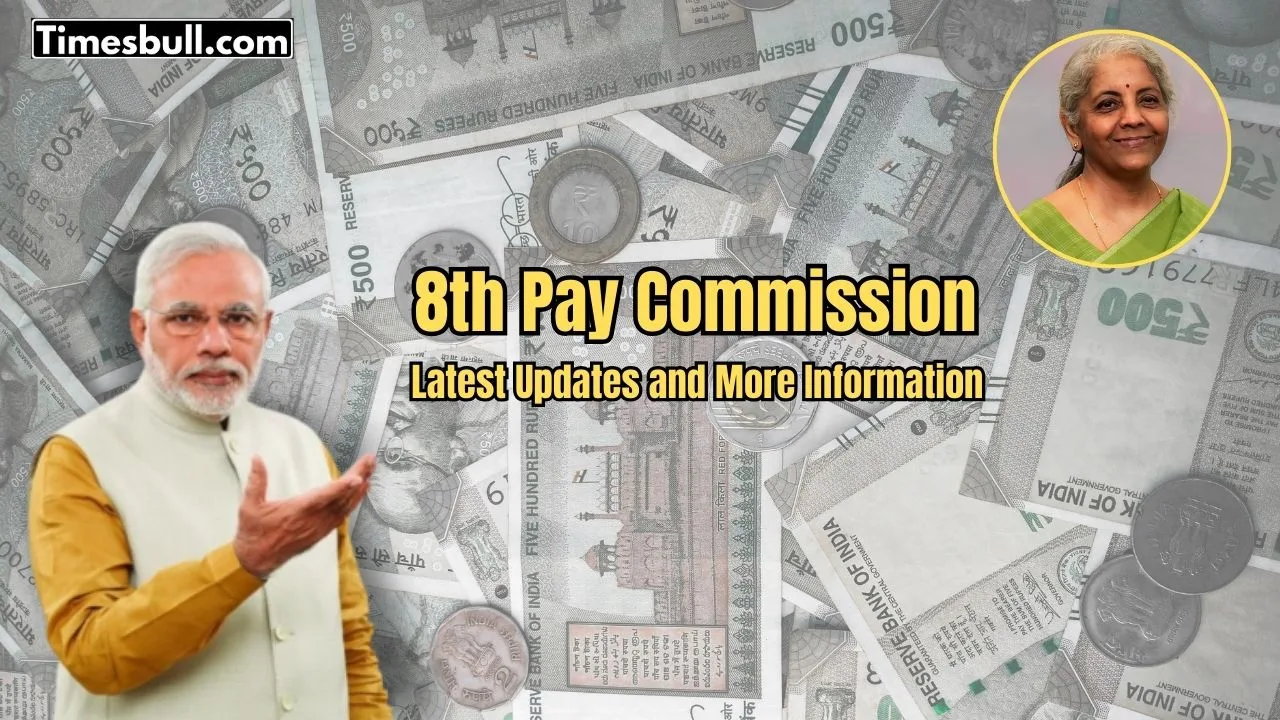After a long wait, the central government has finally announced the Eighth Pay Commission for its employees and pensioners. The government stated that its recommendations will be effective from January 1, 2026. According to Union Minister Ashwini Vaishnav, this announcement will benefit 50 lakh central employees and 65 lakh pensioners, including 4 lakh government employees in Delhi. The pensions of employees retiring under the Eighth Pay Commission will also increase.
PM Modi Announces the 8th Pay Commission
PM Modi announced the 8th Pay Commission on ‘X,’ stating, “We are all proud of the efforts of government employees who work to build a developed India. The cabinet’s decision on the 8th Pay Commission will improve the quality of life and boost consumption.”
Appointment of Members for the 8th Pay Commission
The government will appoint a chairman and two members for the 8th Pay Commission. The Seventh Pay Commission was formed in 2016, and its term will end in 2026.
Central Employees’ Letter to the Cabinet Secretary
Before the Union Budget, central government employees wrote a letter to the Cabinet Secretary with new demands. SB Yadav, General Secretary of the Confederation of Central Government Employees and Workers, requested a change in the formula for calculating Dearness Allowance (DA) and Dearness Relief (DR). The employee leader suggested replacing the 12-month average with a three-month average to determine the DA rate. They also called for a separate ‘Consumer Price Index’ for central employees and pensioners.
Many Demands Raised in the Letter
The letter, sent on January 17, includes additional demands such as revising DA every quarter (similar to banking employees) and providing point-to-point DA to central government employees, as is the case with employees of banks and LIC.
PM @narendramodi Ji has approved the 8th Central Pay Commission for all Central Government employees. pic.twitter.com/4jl9Q5gFka
— Ashwini Vaishnaw (@AshwiniVaishnaw) January 16, 2025
How Can the Salary Change in the 8th Pay Commission?
Neeti Sharma, CEO of TeamLease Digital, mentioned that the fitment factor could be between 2.6 and 2.85 for the 8th Pay Commission. This would potentially increase salaries by about 30%. Pensions would also increase in the same proportion. Sharma added that these amendments are crucial to combat inflation and the growing wage gap between public and private sector employees.
Cabinet has given approval to 8th pay commission.
Read: https://t.co/EwEz0OSLZBpic.twitter.com/xXzTvRVMAi
— NDTV Profit (@NDTVProfitIndia) January 16, 2025
How Much Can the Salary Increase?
The Seventh Pay Commission, implemented in 2016, set the minimum salary at Rs 18,000, with a dearness allowance of 53%. By January 2026, DA is expected to rise to 59%, increasing the minimum salary to Rs 28,620.
If the fitment factor remains at 2.57 for the Eighth Pay Commission, the minimum salary could rise to Rs 46,620. This represents an estimated 38% increase from the current minimum salary.
